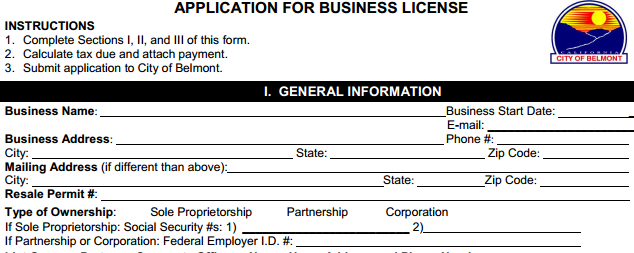Business License Hell
Nobody ever said selling Floppy Emus to the public would be easy, but for an operation that’s barely one step above an eBay garage sale, the amount of legal hoops I’ve had to jump through is ridiculous. How did it get this bad? I’ve had self-employment income in previous years, from consulting projects and ads on my web sites, and I simply listed it on schedule C of my state and federal tax returns. Now Floppy Emu sales have ensnared me in some kind of endless bureaucracy of forms and licensing and taxing. Ugh.
It all started when I found a local company to assemble Floppy Emu boards, because I was tired of hand-assembling them myself. The owner advised me that unless I had a California seller’s permit, he would have to charge me 9% sales tax on the assembled boards. Since this was a fairly large order and 9% was a non-trivial amount of money, I did some research and obtained a seller’s permit for Big Mess o’ Wires. Hooray, unnecessary tax avoided! Unfortunately this meant I was now obligated to collect sales tax from California residents when they buy a Floppy Emu, and file a special sales tax return with the state. Ugh. Maybe that wouldn’t have been too bad, if it had been the end of it.
Unfortunately, getting a California seller’s permit seemed to be the trigger for every other state and local agency to hit me up for something. I received a letter from some company called Muni Services informing me that I lacked a business license for the city where I live. I was invited to apply for a license, but there was no mention of the cost, and the application form was entirely geared towards traditional businesses with an office and a retail storefront. I managed to reach somebody at Muni Services who was entirely unhelpful, telling me I should just leave any non-applicable sections of the form blank. In my case, that was pretty much the whole form, except my name and contact info. I sighed, completed the form, and mailed it in.
Some weeks later I received a cryptic bill for $496, which included the business license fee as well as an unexplained penalty. Oddly, the bill wasn’t even from the city, but from this mysterious Muni Services. I was suspicious of some type of scam, but from everything I could tell the city had legitimately contracted Muni Services to handle their business license compliance. So I sighed again and sent them a check for $496, hoping that would be the end of it.
After another interval of a few weeks, I received a phone call from somebody at the city, saying that I needed to go through the “zoning compliance process”. This requires me being at city hall on a weekday between 2:00 and 3:30 PM. Apparently there was some problem with my business license application, because the address provided is not zoned for businesses. No surprise there, it’s my home address! So I have to find a time to visit city hall in the middle of the afternoon on a weekday, and submit some kind of home-based business affidavit. After which it will hopefully be the end of my troubles, but I’m not optimistic.
This whole process makes sense and would be reasonable if I were opening a grocery store or a tire center. But for a part-time hobby that only earns a few hundred dollars a month, these hassles tip the scales to where it’s questionable whether it’s worth it at all.
Read 7 comments and join the conversation7 Comments so far
Leave a reply. For customer support issues, please use the Customer Support link instead of writing comments.



Look on the bright side — you have a local government willing to interfere with businesses, so to keep competitors out you can lobby them to introduce a certification process which requires people selling electronics to have formal electrical engineering credentials etc etc — existing vendors such as yourself will be grandfathered in, of course. That’s what other professions like hairdressers usually do!
Be happy that you do not want to sell in Europe. Board and components have to comply the Reduction of Hazardous Substances (RoHS) directive. This means you have to use lead free solder, must not use some flame retardents, etc. You need a WEEE registration to guarantee that your product is recycled properly after disposal. Not really a bargain. And finally you have to comply with the CE regulations concerning Product Safety, EMC, etc.
If you setup a way to make donations, I’d be happy to send you a donation to offset your business setup costs.
The Floppy Emu is a fantastic product. Please keep making cool things!
That 9% is likely looking cheap now. One the bright side, any new projects that you want to sell won’t have the same issues.
Thanks for putting up with the administrivia on behalf of all of us retrocomputing geeks… please don’t let this tedium impact your passion and talent!
Bureaucratic red-tape nonsense. Ugh…
>Be happy that you do not want to sell in Europe. Board and components have to comply the >Reduction of Hazardous Substances (RoHS) directive. This means you have to use lead free >solder, must not use some flame retardents, etc. You need a WEEE registration to guarantee >that your product is recycled properly after disposal. Not really a bargain. And finally you >have to comply with the CE regulations concerning Product Safety, EMC, etc.
These kind of directives are everywhere in the world, not only in europe… What is the job of the FCC for example ?